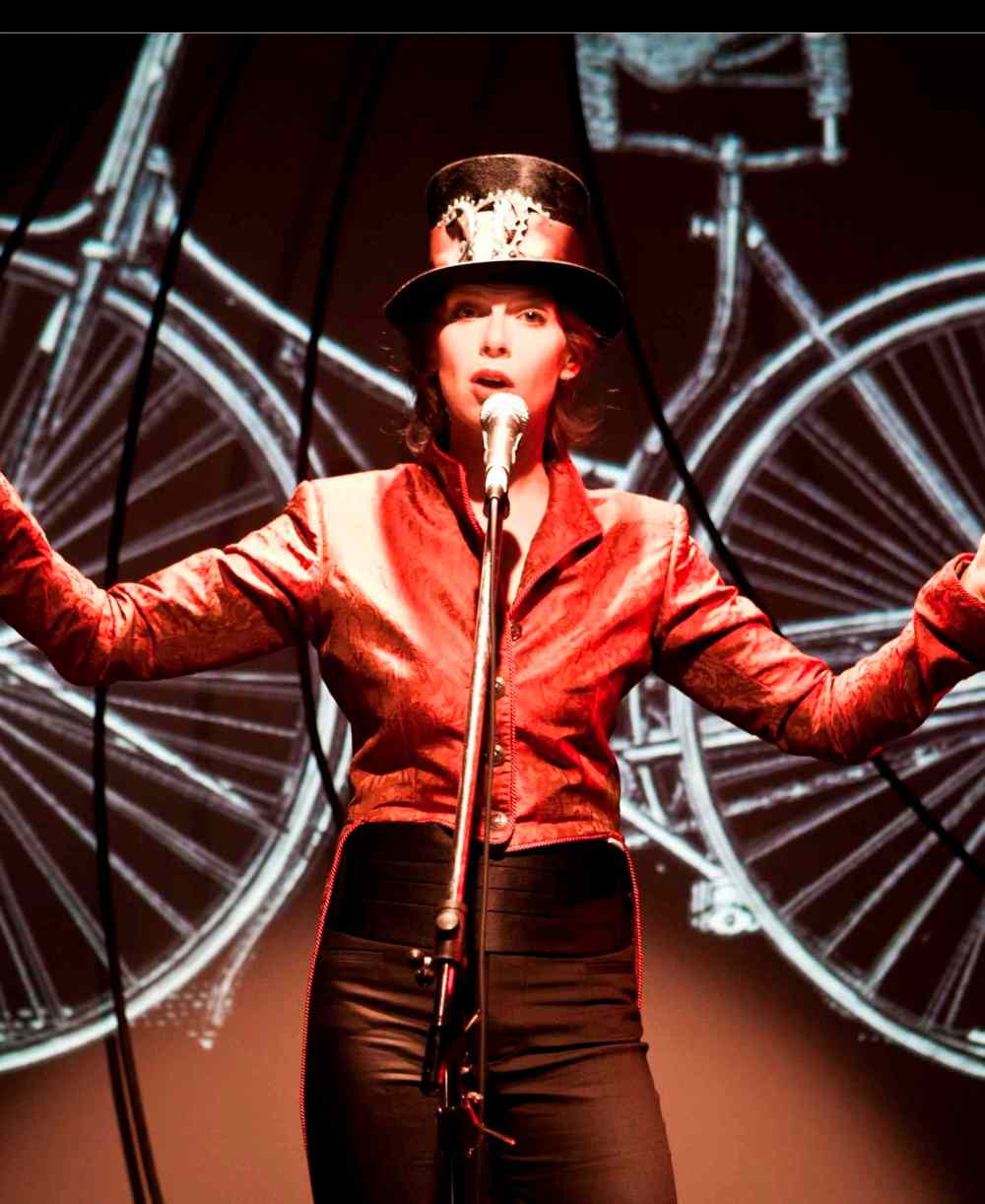Playwright’s ode to bicycle examines its role in women’s emancipation
Advertisement
Read this article for free:
or
Already have an account? Log in here »
To continue reading, please subscribe:
Monthly Digital Subscription
$1 per week for 24 weeks*
- Enjoy unlimited reading on winnipegfreepress.com
- Read the E-Edition, our digital replica newspaper
- Access News Break, our award-winning app
- Play interactive puzzles
*Billed as $4.00 plus GST every four weeks. After 24 weeks, price increases to the regular rate of $19.00 plus GST every four weeks. Offer available to new and qualified returning subscribers only. Cancel any time.
Monthly Digital Subscription
$4.75/week*
- Enjoy unlimited reading on winnipegfreepress.com
- Read the E-Edition, our digital replica newspaper
- Access News Break, our award-winning app
- Play interactive puzzles
*Billed as $19 plus GST every four weeks. Cancel any time.
To continue reading, please subscribe:
Add Free Press access to your Brandon Sun subscription for only an additional
$1 for the first 4 weeks*
*Your next subscription payment will increase by $1.00 and you will be charged $16.99 plus GST for four weeks. After four weeks, your payment will increase to $23.99 plus GST every four weeks.
Read unlimited articles for free today:
or
Already have an account? Log in here »
Hey there, time traveller!
This article was published 14/01/2016 (3553 days ago), so information in it may no longer be current.
In the 21st century, the bicycle is surely the most politicized mode of personal transportation. To choose a bike over a car or public transport is to take a stand in defiance of the oil industry, the auto industry and global warming. In recent years, an intricate web of bicycle lanes and paths, where none existed before, attests to the political potency of pedal power.
In her touring show Spin, actress-musician-playwright Evalyn Parry demonstrates that even when it gained popularity in the late 19th century, the modest bicycle was more than a recreational form of self-transport. It came into the world loaded with the potential to shake the patriarchal power base to its foundations.
In a phone interview, Parry, a lifelong cyclist, said she was initially interested in writing a simple tribute to the bicycle.

“My first inspiration was to write a love song to my bicycle, and to try to unpack why the bike engenders strong, passionate feeling inside of me and inside so many of the cyclists that I know,” she says.
She was also interested in creating a piece that would exploit her skill set, beyond her ability to negotiate her bike around the roads of her native Toronto without falling prey to those pesky, cyclist-hobbling streetcar tracks.
“One of my goals was to bring together my practices as a theatre artist, a songwriter and a spoken-word artist,” she says. “I wanted to do something that combined forms in a new way for myself.”
On the musical front, Parry plays guitar in a band that also features Kathleen Kajioka on violin, Kevin Fox on cello, Angela Rudden on viola and percussionist Brad Hart, who gets an assortment of sounds from a vintage bicycle.
Content-wise, let’s just say research led Parry onto a bicycle path less travelled.
“I had heard that there was a connection between the early feminist movement and the bike in the late 19th century and I didn’t know anything about that,” she says. “I thought: ‘I love bikes. I love feminism. Hmm. I should research that.’ “
The result is Spin, Parry’s freewheeling paean to the bicycle that points out, among other things, that the bicycle played its part in revolutionizing women’s fashion.
“Women’s fashion of the day was floor-length skirts, and obviously that wasn’t conducive to riding a bike,” Parry says.
“As more women started to ride, the bike became a symbol of the women’s emancipation movement. The rallying cry was about women getting the vote and women having more personal agency, but on the fashion front, (the bicycle) led to more women wearing pants or bloomers.
“That, in and of itself was a huge piece, very controversial and very symbolic in the public eye. It really did become a symbol for the movement.”
Spin fixates particularly on the story of a woman who qualified as a revolutionary in the Victorian epoch, a Latvian emigré named Annie Cohen Kopchovsky. She would gain fame — and notoriety — under a different name: Annie Londonderry, the first woman to cycle around the world.
That singular achievement was especially impressive for the way Annie managed to fund her adventure.
“A woman riding around the world in 1895 was something so unheard of for someone of her gender at that time,” Parry says.
“Part of the way she financed this effort was selling advertising space on her bike and her outfit as she rode,” she says, adding that Annie took the name “Londonderry” on behalf of a sponsor, the Londonderry Lithia Spring Water Company.
“So she became a literal moving billboard,” says Parry, who delighted in the added meaning this gave to the play’s title.
“She was full of spin herself, in the way she did her own publicity and gathered hype and publicity around the trip in order to carry on.
“When I stumbled across her story, it was amazing to me that it brought together all these threads into one story. I just connected to her in all these unexpected ways. It became the hub of a wheel, if you’ll forgive all the cycling metaphors,” she says.
Spin runs 80 minutes without an intermission.
randall.king@freepress.mb.ca @FreepKing

In a way, Randall King was born into the entertainment beat.
Our newsroom depends on a growing audience of readers to power our journalism. If you are not a paid reader, please consider becoming a subscriber.
Our newsroom depends on its audience of readers to power our journalism. Thank you for your support.
History
Updated on Thursday, January 14, 2016 9:20 AM CST: Adds video, replaces photo, changes headline



